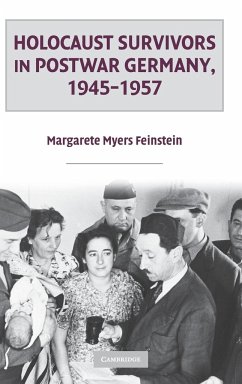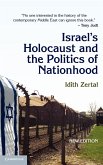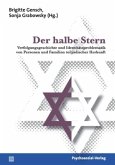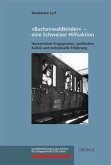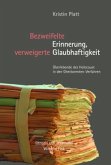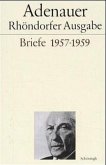Stranded in Germany after the Second World War, 300,000 Holocaust survivors began to rebuild their lives while awaiting emigration. Brought together by their shared persecution, Jewish displaced persons forged a vibrant community, redefining Jewish identity after Auschwitz. Asserting their dignity as Jews, they practised Jewish rituals, created new families, embraced Zionism, agitated against British policies in Palestine, and tried to force Germans to acknowledge responsibility for wartime crimes. In Holocaust Survivors in Postwar Germany, Margarete Myers Feinstein uses survivor memoirs and interviews, allowing the reader to 'hear' the survivors' voices, focusing on the personal aspects of the transition to normalcy. Unlike previous political histories, this study emphasizes Jewish identity and cultural life after the war.
Hinweis: Dieser Artikel kann nur an eine deutsche Lieferadresse ausgeliefert werden.
Hinweis: Dieser Artikel kann nur an eine deutsche Lieferadresse ausgeliefert werden.
'Margarete Myers Feinstein's Holocaust Survivors in Postwar Germany is a wonderful book. Meticulously researched and well written it tells the compelling story of the immediate post-liberation years in which Holocaust survivors returned to life - to Jewish life in social, political, religious, cultural and above all personal terms. ... Anyone reading Feinstein's work will understand that the immediate postwar years were pivotal and Feinstein offers us unique access to that time and place.' Michael Berenbaum, American Jewish University

